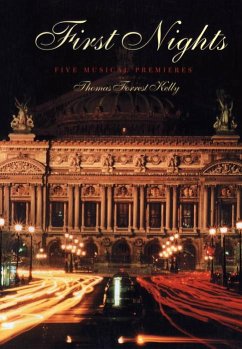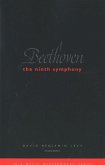This lively book takes us back to the first performances of five famous musical compositions: Monteverdi's Orfeo in 1607, Handel's Messiah in 1742, Beethoven's Ninth Symphony in 1824, Berlioz's Symphonie fantastique in 1830, and Stravinsky's Sacre du printemps in 1913. Thomas Forrest Kelly sets the scene for each of these premieres, describing the cities in which they took place, the concert halls, audiences, conductors, and musicians, the sound of the music when it was first performed (often with instruments now extinct), and the popular and critical responses. He explores how performance styles and conditions have changed over the centuries and what music can reveal about the societies that produce it. Kelly tells us, for example, that Handel recruited musicians he didn't know to perform Messiah in a newly built hall in Dublin; that Beethoven's Ninth Symphony was performed with a mixture of professional and amateur musicians after only three rehearsals; and that Berlioz was still buying strings for the violas and mutes for the violins on the day his symphony was first played. Kelly's narrative, which is enhanced by extracts from contemporary letters, press reports, account books, and other sources, as well as by a rich selection of illustrations, gives us a fresh appreciation of these five masterworks, encouraging us to sort out our own late twentieth-century expectations from what is inherent in the music.
Dieser Download kann aus rechtlichen Gründen nur mit Rechnungsadresse in A, B, BG, CY, CZ, D, DK, EW, E, FIN, F, GR, HR, H, IRL, I, LT, L, LR, M, NL, PL, P, R, S, SLO, SK ausgeliefert werden.









